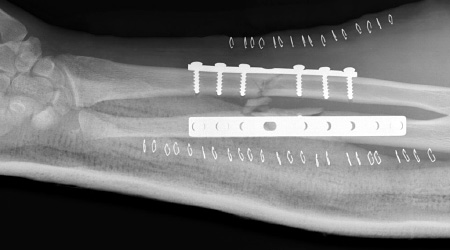How To Fix Your Credit After Filing Bankruptcy

It can take a number of years to fix your credit after filing bankruptcy but it's a necessary step because of how important your credit history and credit score are to daily life. Many employers will not hire you for a job and landlords will not rent you an apartment without good credit. Most consumers will not qualify for Chapter 7 bankruptcy which liquidates all outstanding debt and starts them with a clean slate. Most personal bankruptcies are for restructuring debt and paying off creditors under court ordered terms. During this time, implement certain credit repair strategies to fix your credit.
Pay Off All Debt
It is essential to use bankruptcy to pay off all outstanding debt, not only that debt which is ordered by the court but also any other financial obligations which can appear on your credit report. But it's not just a matter of honoring financial obligations. Repaying personal loans from friends and family will also help rebuild relationships which can be used as personal and professional references in the future.
Get Your Credit Report
Each of the three major credit reporting bureaus - Experian, Equifax and TransUnion - are required to provide consumers one free credit report every 12 months. Instead of getting all three credit reports at once, spread them out every four months. Use them to monitor your credit repair strategy to see if it's working or adjustments need to be made. Closely examine your credit reports to verify all information provided is accurate. If any inaccuracies appear, use the provided forms from each credit agency to make corrections with supporting documentation.
Get a Secured Credit Card
Obtaining personal credit after bankruptcy can be next to impossible especially for the first 6 to 12 months. It is likely that no lender will deem you credit worthy and run the risk of default if they extend you a loan. Secured credit cards however can be easier to qualify for because the credit card issuer is guaranteed to be repaid should the borrower stop making payments. Try to qualify for a secured credit card, which uses cash as collateral, with a $250-$500 maximum credit limit. This way you can start rebuilding credit by making small purchases and making monthly credit card payments on time and paid in full.
Open Bank Accounts
Open a checking and savings account at your local bank or credit union. Start building an emergency fund for the savings account and use the checking account to make bill payments online. Having established demand deposit accounts continues the process of fixing your credit after filing bankruptcy by building new financial relationships with various institutions. An emergency fund can prevent the need to use payday or title loans should something happen. A checking account eliminates the need to use money orders or carry cash when making purchases or paying bills
Make Payments On Time
The single most important factor to fixing your credit is to pay your bills on time especially for loans like credit cards. Your credit score is based off different categories and weightings. Payment history comprises 35% of your FICO score and is the single most important factor for lenders. The ability to repay outstanding obligations on time for the correct amount is the most important consideration for businesses that extend credit. Establish a pattern, over the next few years, of paying your bills to show that you are a financially responsible and trustworthy consumer.







